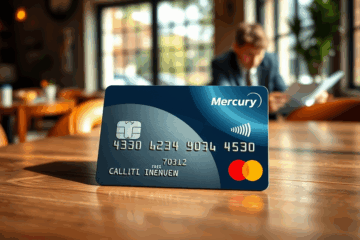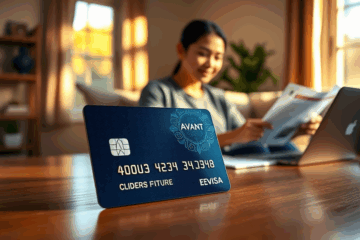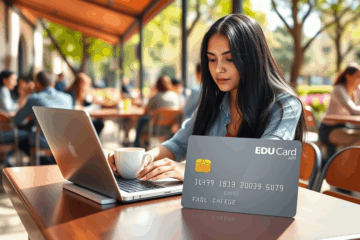Explore Prepaid Cards if You Have No Bank Account
Prepaid Cards offer a practical solution for individuals who may not have access to traditional banking services.
In this article, we will explore a range of alternatives tailored for the unbanked, including mobile banking, prepaid debit cards, digital wallets, and peer-to-peer payment platforms.
By understanding various options such as credit unions and microfinance institutions, we will highlight how community-based financial services can enhance financial inclusion.
Join us as we delve into these innovative solutions and help you find the best fit for your financial needs, empowering you to take control of your finances.
Understanding Life Without a Bank Account
Navigating life without a bank account presents a string of everyday hurdles, with one of the most pressing challenges being the difficulty in managing finances safely.
Unbanked individuals often lack access to basic financial services, resulting in reliance on costly alternative services like check-cashing businesses or payday loans, which impose high fees.
In addition, limited access to credit exacerbates financial vulnerability, impeding the ability to handle emergency expenses or invest in future opportunities.
These issues further extend to barriers such as difficulty paying bills on time due to the absence of online banking conveniences, making financial stability an elusive goal.
However, innovation in financial technology offers a glimmer of hope.
Emerging fintech solutions are beginning to bridge this gap, providing more inclusive options for the unbanked population by offering mobile wallets and prepaid cards.
Platforms like those from like USIO.
The process requires minimal documentation, letting you obtain a card instantly.
Loading funds onto your prepaid card is equally simple.
Users can easily add funds through cash deposits at retail locations, direct deposit of paychecks, or online transfers.
This ensures that you can manage your money without accessing a bank account.
Once funded, prepaid cards are used like traditional debit cards, allowing you to make purchases in stores or online, pay bills, and even withdraw cash from ATMs.
Here are some perks of using prepaid debit cards:
- Low entry barrier.
- No overdraft fees.
- Widely accepted.
Moreover, budget control stands as the most valuable benefit.
Since you can only spend what you’ve loaded, it prevents overspending issues as highlighted by Corpay.
Transitioning to prepaid cards enables a safe and practical solution for financial management.
Digital Wallets for Everyday Payments
Digital wallets have emerged as a vital tool for individuals without a traditional bank account, allowing them to manage money efficiently and access financial services smoothly.
These platforms securely store value, enabling users to pay both in physical stores and online seamlessly.
With digital wallets like mobiquity Pay and Alipay, users send money instantly and effortlessly, eliminating the need for bank intermediaries.
By leveraging advanced technologies like two-factor authentication and encryption, digital wallets ensure underlined strong protection against fraud.
As a robust alternative to conventional banking, these wallets empower unbanked individuals with financial inclusion and convenience.
In comparing popular digital wallets, their features and ease of use greatly enhance user experience.
Below is a simple comparison:
| App | Main Feature |
|---|---|
| Google Pay | Tap-to-pay |
| PayPal | Peer-to-peer transfers |
These wallets eliminate barriers to financial transactions and broaden the scope for economic engagement for those traditionally excluded from banking systems.
As digital wallets continue to evolve, their capacity to provide convenience and security makes them an indispensable part of modern finance.
Peer-to-Peer Payment Platforms Made Simple
Peer-to-peer payment apps simplify transactions for non-banked individuals, offering a convenient solution for everyday financial activities.
These platforms, such as Stripe Mobile Payment Apps, allow users to send, receive, and request money using just a phone number or email.
This eliminates the need for a traditional bank account, providing accessibility to those who might otherwise be excluded from mainstream financial systems.
For the unbanked, bill-splitting with friends or paying suppliers in a small business setting becomes incredibly simple.
The process is both fast and intuitive, with notifications confirming each transaction.
One of the key benefits is the instant transfer capability that lets recipients access funds quickly.
Additionally, security protocols are robust, ensuring each user’s details are protected, while enabling seamless money transfers.
These apps increasingly become part of daily life, empowering individuals with flexibility and control over their finances.
As the digital financial landscape evolves, peer-to-peer platforms continue to offer convenient alternatives, reflecting a shift towards more inclusive financial services.
Community-Based Financial Services
Credit unions and microfinance institutions play an integral role in advancing financial inclusion, particularly for unbanked communities who lack access to traditional banking services.
These community-based financial services bridge a critical gap by offering personalized support that is deeply rooted in local communities.
This local focus fosters trust and rapport, allowing residents to feel a sense of belonging and empowerment.
By providing small loans and savings programs, credit unions and microfinance institutions offer a supportive pathway for individuals to manage their financial health effectively.
For example, credit unions are vital in promoting financial inclusion by offering customized solutions tailored to local needs, which are often overlooked by mainstream banks.
Additionally, community loan funds enhance these efforts by delivering accessible financial education, helping individuals build financial literacy and self-sufficiency.
This educational aspect is crucial in empowering people to make informed decisions and achieve financial stability.
The emphasis on a hands-on approach ensures that the services provided are not only practical but are also delivered with an understanding of the community’s unique challenges and opportunities.
Consequently, these institutions not only meet immediate financial needs but also lay the groundwork for long-term economic growth and stability, making them a vital component of community development.
Choosing the Option That Fits You
For individuals without bank accounts, selecting the right financial alternative requires evaluating key factors like fees, convenience, and security.
When considering options such as prepaid cards, digital wallets, P2P apps, or community services, understanding the associated costs is vital.
Prepaid cards might appear attractive for cash transactions but often come with hidden charges.
Look into options that prioritize affordability, ensuring you only pay what fits your budget.
Similarly, the convenience of digital wallets and P2P apps can’t be ignored.
These offer rapid transactions and ease of use, making them excellent choices for those frequently making transfers or payments online.
However, ensure compatibility with your smartphone and the ease of access to your funds.
Security is another crucial consideration.
Protecting your finances should be a top priority, so opt for services with robust security measures, such as encryption and two-factor authentication.
Review each option carefully, considering which best safeguards your money while matching your day-to-day needs.
Before making a decision, consider these questions:
- Do the fees fit my budget?
- Is this option convenient for my lifestyle?
- How secure are my finances with this choice?
In conclusion, there are various viable options available for those without bank accounts.
By exploring alternatives like prepaid cards and digital wallets, you can achieve greater financial independence and access tailored services that meet your unique needs.



0 Comments